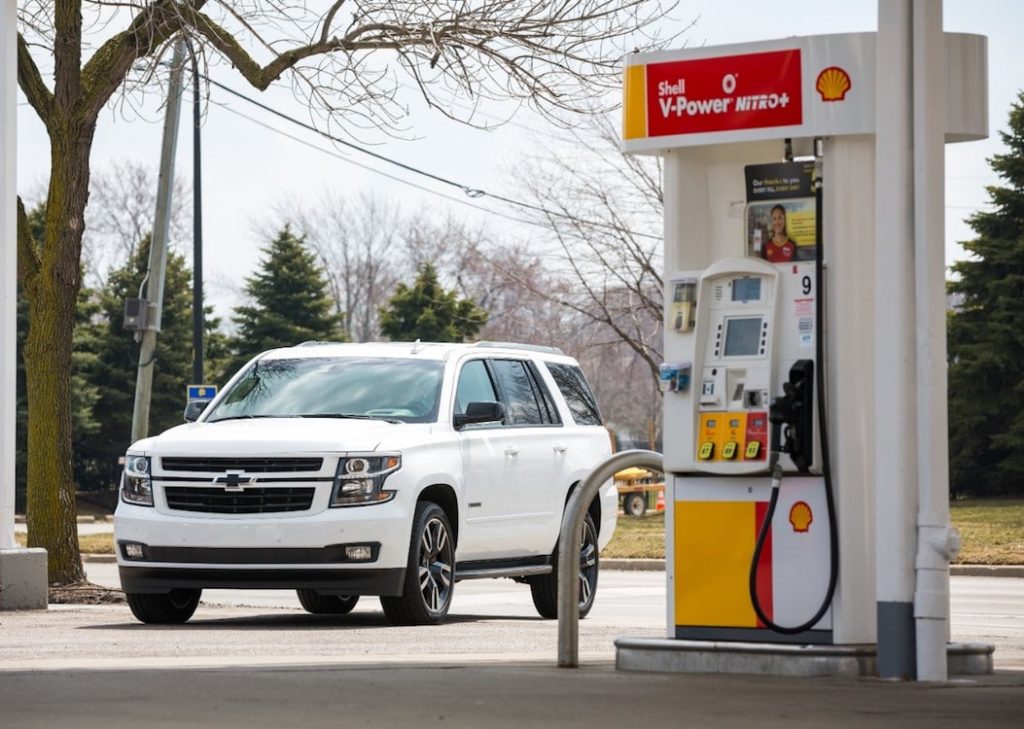AUTONEWS

Oil Giants Bring in Record Profits on Gas Price Surge
Oil giant Exxon Mobil Friday announced a record $17.85 billion profit for the second quarter of the year, while Chevron announced it also hit an all-time high for the period, with earnings of $11.62 billion.
While industry officials have blamed the war in Ukraine, as well as the high cost of oil at the pump for this year’s surge in gas prices, oil companies have clearly benefited handsomely.
British-based Shell earlier this week reported its own earnings record at $11.85 billion. That beat the company’s previous all-time high profit of $9.1 billion — which was set during the first quarter of this year.
“In the end our role is to supply the energy the world needs,” Shell CEO Ben van Beurden said this week.
Coming down from the high...The average price for a gallon of self-serve regular gasoline in the U.S. hit an all-time high of more than $5 a gallon in June, about $1 a gallon more than consumers paid at the previous peak in 2008 — before factoring in inflation.
What angered some observers was the fact the actual price for a barrel of oil only roughly matched its 2008 peak, making it hard for some to swallow the high pump price.
In recent weeks, gas prices have begun to drop, the AAA reporting the average at $4,255 on Friday afternoon, about 63 cents down from a month earlier — but still well ahead of the $3,166 average American motorists paid on July 29, 2021.
Petroleum prices, meanwhile, have also tumbled, benchmark West Texas Intermediary ending the week at around $98 a barrel.
This year's surge has been felt politically. On one hand, it intensified criticism of President Joe Biden, who himself suggested last month “Exxon made more money than God this year.” But Republicans also came under fire after blocking a bill that proponents claim would have given some relief to weary consumers.
Helping fuel a big surge in overall inflation, rising gas prices have forced millions of motorists to curb travel and, in some cases, choose between filling up their tanks and putting food on the table.
“It’s devastating,” Mark Wolfe, executive director of the National Energy Assistance Directors Association, told Reuters. High energy prices, he said, have hit low-income families and frontline workers hard. “You live on a tight budget and this is an extra $40 to $50 per week.”
What's next?...Oil industry analysts are divided when trying to forecast what happens now. The growing threat of a recession has been a major factor in the dip in petroleum prices. It’s also helped to have supplies increase — in part due to drivers driving less.
Oil producers have also accelerated drilling and pumping. But, “(g)iven the long investment cycle times, growing supply will not happen overnight,” cautioned Exxon CEO Darren Woods during an earnings call Friday.
Ironically, this year's surge in gas prices may hurt the oil industry long term. A record number of drivers worldwide have purchased battery-electric vehicles this year. In the U.S., demand rose almost 70% during the first half of 2022, reaching nearly 6% of the overall new vehicle market.
According to research by Consumer Reports and others, much of that appears was linked to consumers hoping to avoid further gas price hikes.
Longer term, Exxon CEO Woods said this year he expects the auto industry will go fully electric. That won't happen immediately, analysts caution. But as demand for battery-cars grows, it will help ease demand for still more oil — and potential diminish future earnings for companies like Exxon Mobil, Chevron and Shell.
by Paul A. Eisenstein

Nenhum comentário:
Postar um comentário